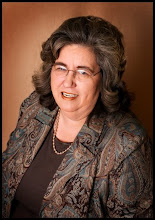Yesterday I was reading a blog I like (Susan Senator’s). Her post The Mythical Autism Beast (http://susansenator.com/blog/2005/12/mythical-autism-beast.html) caught my attention for a number of reasons. This post begins by quoting an article from The Boston Globe Sunday Magazine, 12/4/05 by Darshak Sanghavi, titled The Secret Truth.
Dr. Sanghavi’s comment “AUTISM FRIGHTENS PARENTS more than almost any disorder, since it implies that the child can never function independently in society and may never fully reciprocate, or ever fully appreciate, the expressions of love” which “got under my [Susan’s] skin also bothered me.
Any diagnosis is frightening if you don’t know what it means. For example, when Billy Ray was diagnosed with pediatric bipolar the psychiatrist provided me with literature which said that the diagnosis of pediatric bipolar was more undesirable than a diagnosis of cancer. I asked the pediatrician about that statement. She replied that pediatric bipolar will go on and on and treatment is more difficult. Cancer can be cured or will, unfortunately, end at some point. I think many parents may see the diagnosis of Autism similarly because there are so many unknowns.
Susan ends her post with “What we need is more honest and positive accounts of living with autism. Parents need facts that help them strategize and advocate for their kids, not horror stories and hopelessness. They need hugs and encouragement. Autism need not be a death sentence. Our children were not stolen; we just have to look a bit harder to see them.”
I couldn’t agree more. In prior posts herein, we have discussed that the best way parents can support each other is by being open about what we experience. Disabilities have been considered a stigma of sorts and just not talked about unless necessary. Parents are frightened by the diagnosis more because so little is known rather than the disease itself.
After reading Susan’s blog post and going to The Globe to order the article, there were other things that I want to comment about too.
The article by Dr. Sanghavi is basically about the vaccine-autism controversary. He profiles a family whose sons experience Autism, the beliefs they have established and the choices they have made in doing what is best for their sons.
In the same paragraph, that Susan quoted the first sentence (quoted above), Dr. Sanghavi writes: “Though portrayed in the public imagination by characters such as Dustin Hoffman in Rain Man, autistic people are like snowflakes: No two are alike, and the clinical spectrum ranges from severe disability to near normalcy.” Absolutely!!
That is exactly why I wrote Parenting Your Complex Child (AMACOM Books April 2006). I devoured all the literature I could on Autism when Billy Ray first demonstrated symptoms and we finally got the diagnosis. Some books were helpful and some were not. Many told me what I should do for Billy Ray specifically. Those generally didn’t work for us. The ones that helped the most, such as Temple Grandin’s books and articles, told what she experienced. I could then glean information and apply it to help find out what worked for Billy Ray. My book recognizes that all disabled children are unique whether they have complex issues or not. It seemed more helpful to encourage parents in methods for determining what worked for their own child than to tell them what to do because it worked for my son.
Dr. Sanghavi is somewhat critical of the family for performing “their own clinical trials with a study population of two, or sometimes one.” That statement got under my skin more than the one that got to Susan Senator. As Dr. Sanghavi acknowledges there are not many larger studies to help doctors help parents. To make matters worse developmental disabilities are not taught extensively as a part of medical school. Parents must do their own investigation, sharing results with the doctor involved, of triggers, problem areas and what works for their own “snowflake”.
I don’t know where to come down on the vaccination and dietary issues. I highly respect the work done by Dr. Rimland and Autism Research Institute. I have devoured his materials and tried many of his suggestions. Again, complex children are unique. What works for one may not for another. The fact that they didn’t work for my son at the stage of his life when I learned of such things doesn’t mean they are not good suggestions for your child.
I agree with Susan that Autism is not a death sentence. It is a life changing experience. Nothing will be the same as we expected.
I was reminded of the article “Don’t Mourn for Us” by Jim Sinclair I read years ago and recently found again at http://www.autistics.us/library/dontmourn.html. Mr. Sinclair eloquently makes the point that when we grieve for our child who has Autism we are wishing that we had the child we hoped for (the perfect one that rarely exists) and want the Autistic one to go away. He states that without Autism the child would not be the same person as he is with Autism. According to Mr. Sinclair “Autism is a way of being. It is not possible to separate the person from the autism.”
See my recent post thanking Billy Ray’s birth parents where I compared his life to the classic movie “It’s a Wonderful Life”. Our mission, should we chose to accept it, will change our outlook on everything about life. As we accept our child for who he is and help him do what works best for him including but not limited to medical care, educational and home programs, a quality of life happens that cannot be described fully.
Until tomorrow,
Peggy Lou Morgan
www.parentingyourcomplexchild.com
www.lighthouseparents.com
Everything Upside Down!
14 years ago






No comments:
Post a Comment